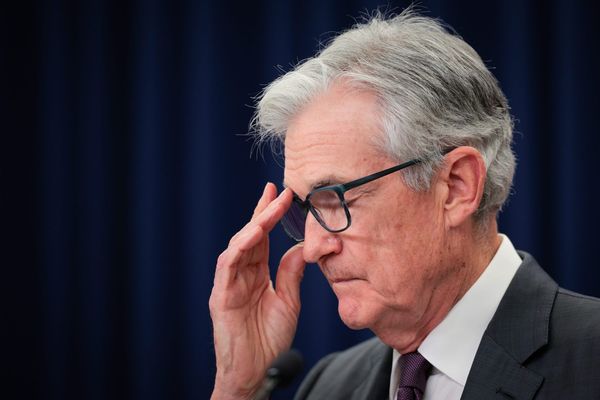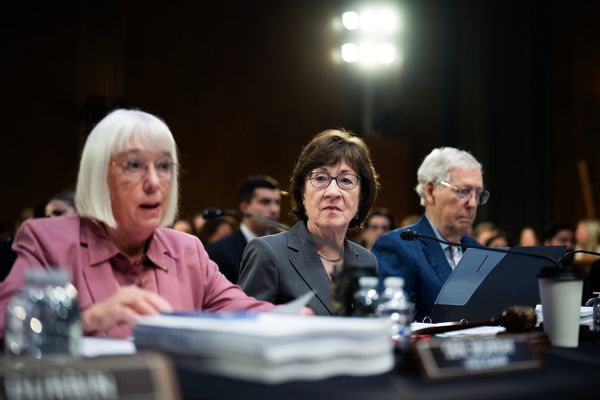Growing up, Jenny Reichheld traveled with her father. She grew accustomed to his focus on customer service. Her dad, Fred Reichheld, would notice everything — and comment on it.
"He was constantly analyzing the service," she said. "At the airport, there'd be this customer service disaster and he'd have a lot to say about it. He was always tuned in to what companies could do to make their service better."
Fred Reichheld did more than assess customer service, both good and bad. He wanted to know what differentiated the best companies from the rest.
In the 1980s, he developed a novel theory: Companies that earned loyalty from their customers generated higher growth and profits. He believed that the best organizations prized the success of their customers and employees above all else — and bred loyalty as a result.
"It started when I thought, 'What kind of company would I want to buy from, work for or invest in?'" Reichheld said. "I think the highest moral standard is to treat others the way you would want a loved one treated. Companies that strive to treat customers and employees in this manner" stand out.
Simplify Your Findings
Reichheld, 73, wrote "The Loyalty Effect" and four other books. He also created the Net Promoter system of management, popularly known as NPS (Net Promoter Score).
Thousands of organizations use NPS to measure customer sentiment. It's brilliantly simple: It asks customers to rate the likelihood that they would recommend a company, product or service to a friend.
About two-thirds of the Fortune 1000 use NPS. By focusing on just one survey question about referrals, it provides insight into customer loyalty and retention.
Reichheld introduced the concept of NPS in 2003. It has spurred profitable growth at companies by enabling them to turn more customers into promoters by cultivating their loyalty.
Fred Reichheld: Follow An Unconventional Career Path
Reichheld has spent nearly 50 years at Bain & Co., a Boston-based consulting firm. He took big risks along the way.
After joining Bain in 1977, Reichheld rejected the conventional go-getter path. He was picky about his clients, avoiding those that didn't treat people right.
"Early on, I chose to work with firms whose behavior and aspirations were consistent with my values," he said. "That sometimes meant avoiding clients that could become big revenue generators for Bain, and instead cultivating smaller opportunities with firms that prioritized treating customers and employees right."
Within a few years, he was building an increasingly solid case that, among companies that he most admired, the ones that earned customer loyalty were outperforming their rivals.
"It was at the core of their success," he said. "And it was not even tracked by Generally Accepted Accounting Principles." GAAP is a widely-used set of accounting standards.
By the 1990s, Reichheld was ready to codify his findings about what he called "loyalty economics" in a book. But that wasn't the Bain way.
"I had to convince Bain that it was OK to write a book," he said. "It was countercultural at Bain to do that." The top brass approved, hoping that Reichheld's work might enhance the company's brand.
"Fred was a pioneer, a pathbreaker," said Tom Tierney, Bain's chief executive from 1993 to 2000. "He had this breakthrough idea, so I said to him, 'Go for it.'"
Yet no one knew how readers would respond to his premise: that improving customer retention can boost profits and loyalty-based management is superior to the economics of perpetual customer churn.
"Had the book failed or the concept not been proven out or not had legs, who knows what would've happened (to Fred's career)," Tierney said. "There was uncertainty."
It became a bestseller and revolutionized how leaders thought about their organization's customers and employees.
Reichheld: Apply The Golden Rule For Growth And Profit
Like many innovative thinkers, Reichheld refused to accept the status quo. At the time, many companies focused on their latest marketing campaigns and new pricing and product offerings. But they could only make so much headway in generating profitable growth.
Harnessing the untapped power of customer loyalty could turbocharge results.
"Fred made the observation that different customers have different values and satisfaction surveys were superficial in the value of their data," Tierney said. "He discovered this concept of loyalty, a radical departure from satisfaction surveys. And he found that loyalty was a better indicator of business success than short-term profits."
Yet Reichheld knew that he was staking his professional reputation on a bold new way of thinking. Even though he amassed evidence of the benefits of loyalty economics, the next step was popularizing a deceptively simply idea.
"The concept that the truer you are to the Golden Rule, the richer you'll get (as a company), you just didn't read that back then in the Wall Street Journal," he said.
Create A Lasting Hit
When Reichheld created the Net Promoter Score, he figured it would help organizations track their performance in winning over customers. But it wound up doing much more than that.
He never expected NPS to have such a lasting impact at thousands of organizations around the world. An IBM executive called it "more than a metric" and even referred to it as a "religion."
"We tested all these other questions, looking at which question would be the best predictor of future behavior," he recalled. "A referral is an act of love. You don't do it for yourself. You do it for a friend. So if the question was 'Would you recommend us to a friend?' followed up with 'Can you tell us why?' it would show how (the company) was enriching the customer's life."
Initially, Reichheld faced angry blowback for his NPS framework.
"Any time you change a system, it's threatening to anyone who prospers in that (old) system," he said. "I ran into this wall of hate from the then-current customer satisfaction experts who used traditional market research techniques. They came at me with such venom."
Examples included labeling his work "junk science" and lobbing criticisms such as, "A one-question survey is silly" and "Your work is lightweight and wrong."
"I was seething," Reichheld said. "So I dug in further to make the proof more rigorous."
Use Vivid Slides To Enhance Speeches
For an author of five successful books, Reichheld is modest about his writing skills.
"I managed to graduate college (at Harvard) without taking any English courses," he said. "I do not enjoy writing. It still feels like calisthenics."
But he has always placed a high value on clear, cogent writing. His daughter Jenny recalls his diligent editing when he read her student assignments.
"When I wrote papers in middle school and high school, I asked him to read them and he'd rip them to shreds," she said with a laugh. "He's really thoughtful about how to communicate ideas clearly and organize thoughts in written form. I became such a better writer thanks to him."
A popular speaker at business conferences, Reichheld conveys his points well in front of audiences. He likes to tell stories and uses visual aids to reinforce his message.
"I created a slide of a cute puppy representing customer loyalty," he said. "I contrasted that with a gorilla wearing a red tie representing the CFO (chief financial officer), symbolizing the tyrannical force governing all business decisions based on generally accepted accounting numbers."
He adds: "I admire the gorilla's high standards for rigor and reliably audited numbers. The problem is accounting doesn't distinguish revenues resulting from happy customers coming back for more and referring friends versus revenues resulting from overpromising sales pitches, marketing promotions and advertising hype."
Fred Reichheld's Keys:
- Pioneering business strategist and author who popularized loyalty economics and created the Net Promoter Score.
- Overcame: Resistance to his focus on customer loyalty and the Net Promoter system.
- Lesson: "I think the highest moral standard is to treat others the way you would want a loved one treated."







